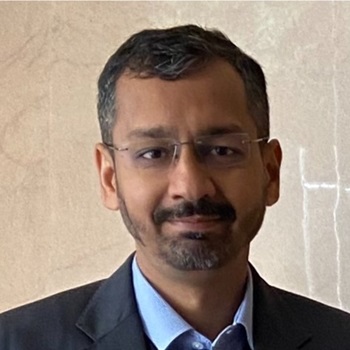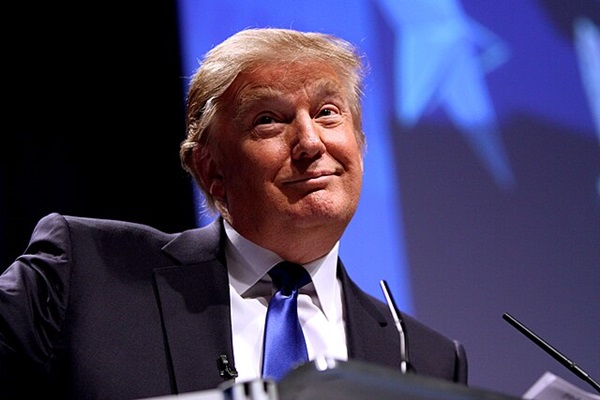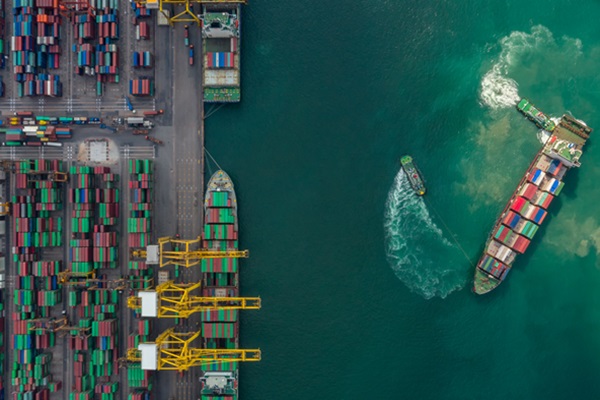.png)

Dr. Srinath Sridharan is a Corporate Advisor & Independent Director on Corporate Boards. He is the author of ‘Family and Dhanda’.
May 22, 2025 at 3:30 AM IST
“Let me wet my beak.”
That quiet line from The Godfather captured the entire architecture of silent complicity, of power that demands its cut without consequence. It was not a threat. It was a system. And that system, dressed in suits and ties, now echoes across the corridors of the world’s most powerful democracy.
Donald Trump, in his second and final term as President of the United States, is showing us not just what power does, but what it now dares to do in plain sight. From cryptocurrency side-hustles to geopolitical jet diplomacy, from deals with questionable regimes to monetising office through markets, the erosion of institutional integrity is now televised, tokenised, and traded.
This shows decay of the very governance model the West exports to the rest of the world. And if the line between public power and private profit no longer holds at the top, then we must stop pretending it holds anywhere at all.
Governance is not an ideal to be interpreted loosely. It is not a style or spectrum. You are either on the side of institutional integrity, or you are not. The recent conduct of Donald Trump—now in his second and final presidential term—reveals just how far the United States has drifted from the governance standards it insists the world must follow.
Trump’s second term was expected to be a continuation of populist nationalism. What it has also brought is the deepening of personal profiteering, cloaked as political performance.
Consider the timeline. Just before re-entering the White House, Trump launched a cryptocurrency bearing his name—$TRUMP—whose value is entirely tethered to his own political persona. The coin’s supply is largely held by entities linked to his family. It is speculative, opaque, and completely outside the purview of serious financial regulatory scrutiny.
It would be troubling enough if the story stopped there. But it doesn’t. This coin launch is tied to World Liberty Financial, a firm that has struck a crypto agreement with none other than Pakistan. Yes, the same Pakistan that has spent decades fuelling terror networks, laundering illicit funds, and destabilising its neighbours. A country that has lived off Western dole and global aid and yet routinely undermines the very values its donors claim to promote.
Pakistan was on the FATF grey list for years. It has repeatedly failed basic tests of financial probity and remains a sanctuary for terror networks that have targeted both regional and global security. And now, somehow, it is poised to be South Asia’s crypto hub—with the help of a firm linked to the sitting US President. This is a political economy of complicity.
The United States continues to project itself as a governance-first democracy. Yet its actions betray that very claim. Its veto-wielding dominance over multilateral institutions like the IMF enables indirect financial support to states like Pakistan—often dressed up as structural support or balance-of-payments assistance. The mechanism may be global. But the outcomes are deeply political. If you fund a state that finances terror, you are not an indirect enabler. You are a partner in its outcomes.
And then there is the Qatar connection. A $400 million Boeing 747-8, to be configured as a flying Air Force One, has been proposed as a gift to Trump by Qatar’s ruling family. Trump wants it. Yet in Washington, the proposal faces significant bipartisan opposition, with members of both parties raising alarms about the ethical and strategic implications of accepting such a lavish token. Still, the mere fact that this is even on the table speaks volumes about the shifting boundaries of governance. Adding to the complexity is the fact that Pam Bondi, now the US Attorney General and a close Trump ally, previously served as a registered lobbyist for foreign clients including the Qatari government.
In any developing country, these behaviours would be denounced as clear conflicts of interest. Financial press would erupt. Watchdog organisations would launch inquiries. There would be loud, insistent talk of democratic backsliding. Yet in the heart of the so-called first world, it is tolerated as political eccentricity.
What makes this even more galling is the double standard applied to countries like India. For decades, we have been told to tighten our regulations, to keep politics and business separate, to professionalise public office and sanitise our institutions, and to improve corporate governance. These are valid goals. But the credibility of those who promote them depends entirely on whether they live by them too.
The world should be paying attention. Because this is not simply about Trump. It is about the standards we accept and the hypocrisy we enable. When governance is reduced to rhetoric, when conflict of interest is normalised at the highest level of global power, the consequences ripple across borders. Markets stop trusting institutions. Diplomacy turns transactional. Rule of law becomes optional.
India must stop internalising lectures from those unwilling to hold themselves to the same standards. We do not need reminders from Western capitals about the importance of governance while they finance, enable, or ignore the very behaviours they claim to condemn.
After all, governance is not a language of convenience. It is rather a discipline to be practiced at home first. This is not about East or West. It is about truth and theatre. One holds. The other performs. And today, it is tragically clear which of the two the first world has chosen.




